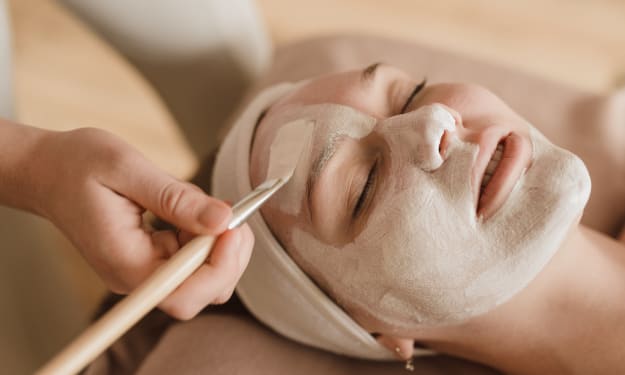Treating Eczema on Black Skin:
Effective Strategies for Managing Symptoms
Eczema, a common skin condition characterized by dry, itchy, and inflamed patches, can affect individuals of all ethnic backgrounds. However, treating eczema on black skin requires careful consideration of its unique characteristics. Black skin tends to be drier and more prone to hyperpigmentation, which can complicate eczema management. This article aims to provide comprehensive insights and effective strategies for treating eczema specifically on black skin. By understanding the unique challenges faced by individuals with black skin, we can develop tailored approaches to alleviate symptoms and improve the overall quality of life.
Understanding Eczema on Black Skin
Black skin possesses unique qualities that influence the manifestation and treatment of eczema. The increased production of melanin, responsible for the rich pigmentation, can lead to post-inflammatory hyperpigmentation (dark spots) after an eczema flare-up. Additionally, the skin barrier in black individuals tends to be weaker, making it more susceptible to dryness and irritants. The combination of these factors calls for a specialized approach to eczema treatment.
Moisturization and Hydration
Maintaining adequate moisture levels is crucial for managing eczema on black skin. Choose moisturizers specifically formulated for dry and sensitive skin. Look for products that contain hydrating ingredients like ceramides, shea butter, and hyaluronic acid. Apply moisturizers immediately after bathing to lock in moisture. Reapply throughout the day as needed, especially on affected areas. Avoid fragranced lotions, as they can trigger skin irritation. Emollient-rich creams or ointments are preferable to thin lotions.
Gentle Cleansing Practices
When cleansing black skin with eczema, it is essential to use gentle, non-irritating cleansers. Look for mild, fragrance-free formulations that won't strip the skin of its natural oils. Avoid hot water, as it can further dehydrate the skin. Instead, use lukewarm water for bathing and limit shower time to prevent excessive drying. After cleansing, pat the skin dry gently with a soft towel, leaving some moisture on the skin surface. This will help to trap moisture and prevent further dryness.
Avoiding Trigger Factors
Identifying and avoiding trigger factors that worsen eczema symptoms is vital. Common triggers include harsh detergents, certain fabrics (e.g., wool), excessive heat or cold, and certain foods. Experiment with your skincare products and laundry detergents to find the ones that are least likely to cause irritation. Opt for clothing made from soft, breathable fabrics like cotton. Maintain a comfortable room temperature and use a humidifier during dry seasons. While food triggers can vary from person to person, common culprits include dairy products, eggs, nuts, and soy. Keep a diary to track flare-ups and identify potential triggers.
Topical Steroids and Medications
In severe cases, dermatologists may prescribe topical corticosteroids to manage eczema symptoms. It's important to follow the prescribed dosage and duration and consult with a healthcare professional for guidance. When using topical steroids, it is recommended to apply a thin layer to the affected areas and avoid prolonged usage to prevent thinning of the skin. Additionally, non-steroidal prescription creams and ointments, such as calcineurin inhibitors, may be recommended for long-term management of eczema. These medications help reduce inflammation and relieve itching.
Conclusion
Managing eczema on black skin requires a tailored approach that accounts for the unique characteristics and challenges faced by individuals with black skin. By prioritizing proper moisturization, gentle cleansing practices, avoiding trigger factors, and utilizing appropriate medications, individuals with eczema can effectively manage their symptoms and improve their skin's health.
It's important to remember that everyone's skin is unique, and what works for one person may not work for another. Therefore, it's essential to consult with a dermatologist or healthcare professional who can provide personalized advice and treatment options based on individual needs.
In addition to the strategies mentioned above, there are a few additional considerations for treating eczema on black skin:
Addressing Hyperpigmentation
Post-inflammatory hyperpigmentation (PIH) is a common concern for individuals with black skin following an eczema flare-up. To address hyperpigmentation, incorporate skincare products containing ingredients like vitamin C, kojic acid, licorice extract, or niacinamide. These ingredients can help brighten the skin and fade dark spots over time. However, it's crucial to introduce these products gradually and monitor the skin's reaction. If hyperpigmentation persists or worsens, consult a dermatologist who may recommend professional treatments like chemical peels or laser therapy.
Sun Protection
Black skin contains a higher amount of melanin, providing some natural protection against the sun's harmful UV rays. However, this does not eliminate the need for sunscreen. UV rays can still penetrate the skin and trigger eczema flare-ups. Look for broad-spectrum sunscreens with an SPF of 30 or higher that are specifically formulated for sensitive skin. Apply sunscreen generously to all exposed areas, even on cloudy days. Reapply every two hours or more frequently if sweating or swimming. Sun protection can help prevent further skin damage and reduce the risk of hyperpigmentation.
Emotional Well-being
Living with eczema can take a toll on a person's emotional well-being, affecting self-esteem and overall quality of life. It's important to prioritize self-care and seek support when needed. Engage in stress-reducing activities such as meditation, yoga, or hobbies that bring joy. Connect with support groups or online communities to share experiences and learn from others facing similar challenges. If eczema significantly impacts mental health, consider consulting a therapist or counselor who can provide guidance and coping strategies.
Conclusion
Treating eczema on black skin requires a comprehensive approach that addresses its unique characteristics. By incorporating proper moisturization, gentle cleansing practices, avoiding triggers, utilizing medications when necessary, and considering additional factors such as hyperpigmentation and sun protection, individuals with eczema can effectively manage their symptoms and improve their skin's health.
About the Creator
Signor Wilson
I'm Signor Wilson, a passionate content creator, YouTuber, blogger, and poet. I love exploring different avenues of creative expression and sharing my insights with the world.






Comments
There are no comments for this story
Be the first to respond and start the conversation.